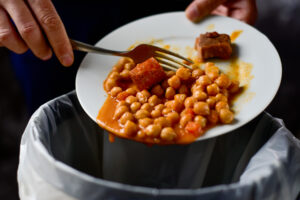
Researchers are converting food waste into biodegradable plastics
Canadian Plastics
Environment Materials Research & DevelopmentThe process uses microorganisms to process different categories of food wastes into polyester biopolymers for plastic materials.

Photo Credit: Adobe Stock/nito
A team of researchers in the U.S. have developed a process to convert food wastes into biodegradable plastics.
The collaboration between University of Missouri College of Engineering – nicknamed Mizzou – professor Caixia “Ellen” Wan and researchers at Virginia Tech in Blacksburg, Va., was spurred by a US$2.4 million grant from the U.S. Department of Agriculture (USDA) for a three-year program to upscale bioplastic production with the goal of replacing petroleum-based plastics while also keeping leftovers out of landfills.
The first-of-its kind project aims to solve two significant problems. Because bioplastics are made from plant and animal products that naturally degrade, they can replace traditional plastics that have harmful effects on the environment, especially marine life. And on the other end, nearly 40 per cent of food produced in the U.S. ends up in landfills, accounting for the single largest component of municipal waste in the country; this results in not only greenhouse gas emissions, but also carries an annual US$165 billion in economic loss from the food, water, energy, and chemicals spent in the food supply chain.
Wan will convert different categories of food wastes, such as vegetables, bread and meat, using microorganisms that can process various substrates into polyester biopolymers for plastic materials.
“There’s no one method that can be applied to all types of food wastes,” Wan said. “Food can have proteins, carbohydrates and fats, so we’re looking at how we can use those to develop value-added products. We have to have different conversion methods for different types of wastes.”
Other researchers on the team are developing a large-scale system to use Wan’s techniques and mass produce new types of plastics for cups, bottles, films and other consumer products. Another expert is evaluating commercial potential.
The outcome of this three-year project will be a process that delivers marketable bioplastic products made from food waste. The reusability of food waste for bio-based plastic production could help reduce landfill quantity and waste management costs, offset petroleum-based plastic production and pollution, and minimize greenhouse gas emissions.
